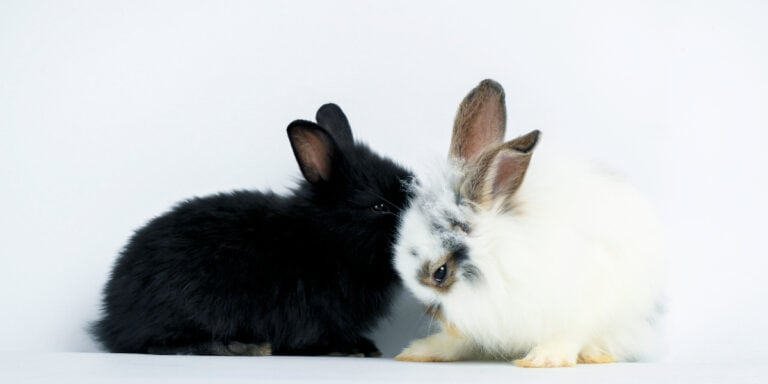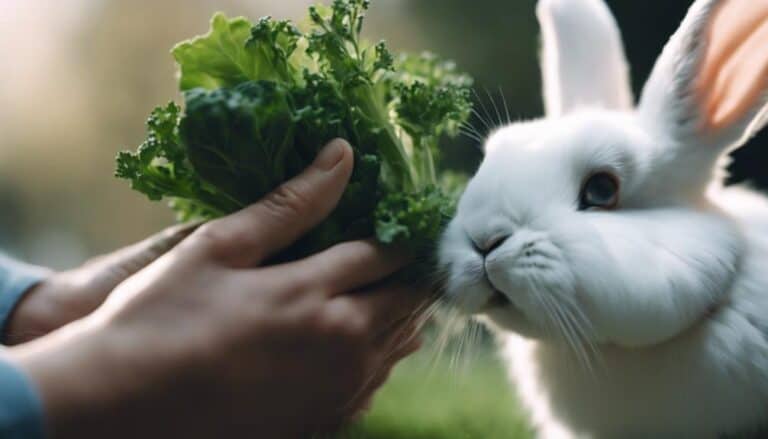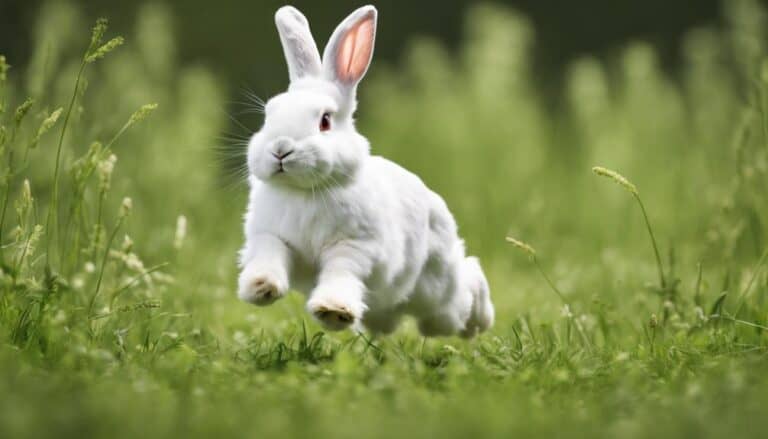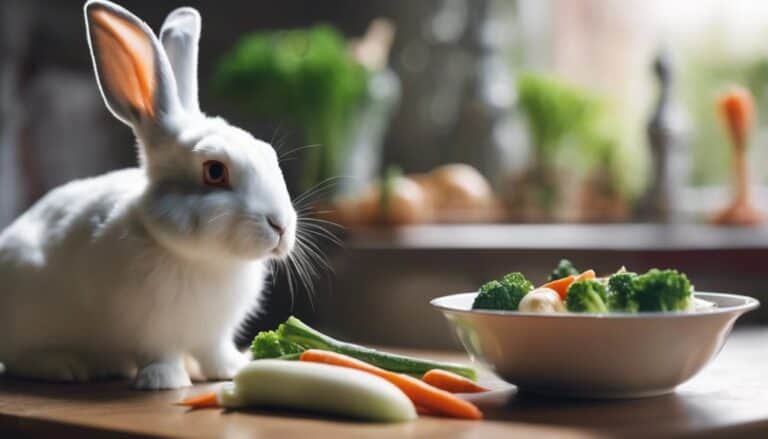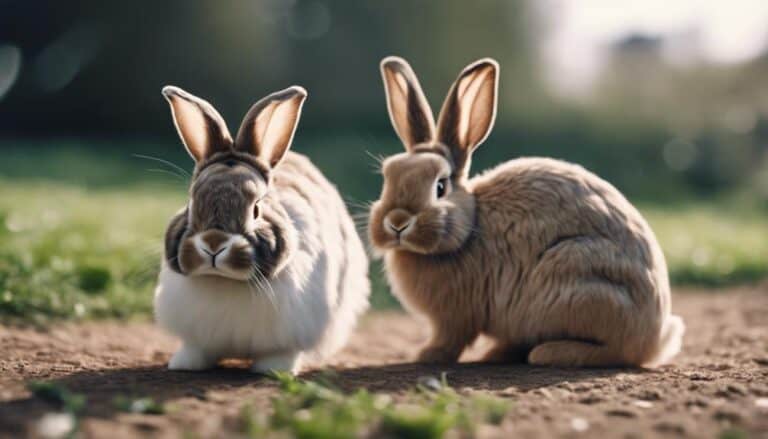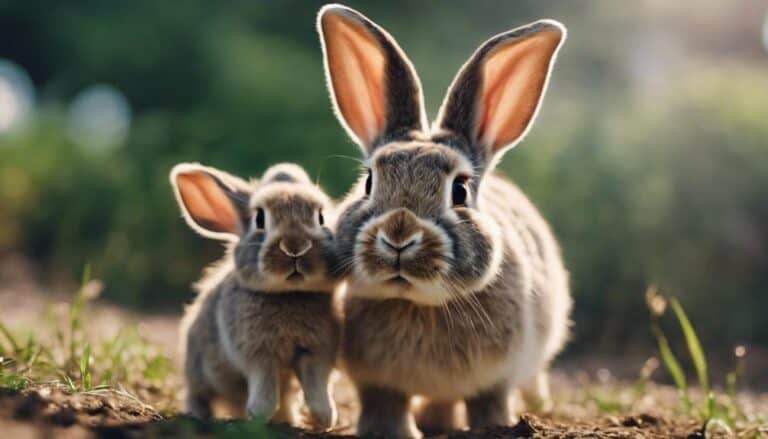So you're wondering when to stop feeding your rabbit alfalfa hay.
The thing is, the timing of this dietary shift is super important for your rabbit’s health and well-being. Transitioning your rabbit to a new diet should be done gradually to allow their digestive system to adapt without stress. Sudden changes can lead to health issues, so careful monitoring during this period is key. Additionally, many pet owners experience feelings of regret and sadness, grappling with understanding guilt after pet loss, which reinforces the importance of making informed decisions for their pet’s nourishment and happiness.
If you make the switch at the right age, you can help prevent potential health issues and give your rabbit the nutrients it needs.
But how do you figure out when it's time to make this change?
Contents
Key Takeaways
So, you're wondering when to stop feeding your rabbit alfalfa hay.
Here's the deal: you should transition to Timothy hay when your rabbit is around 7 months old. To make the change smooth, mix alfalfa and Timothy hay together. This way, you can avoid digestive upset in your bunny.
As a general rule, you should stop feeding alfalfa hay to standard rabbits by the time they're 6 months old. However, it's always best to consult a vet for a personalized diet plan that's tailored to your rabbit's specific needs.
Health Risks of Prolonged Alfalfa Feeding
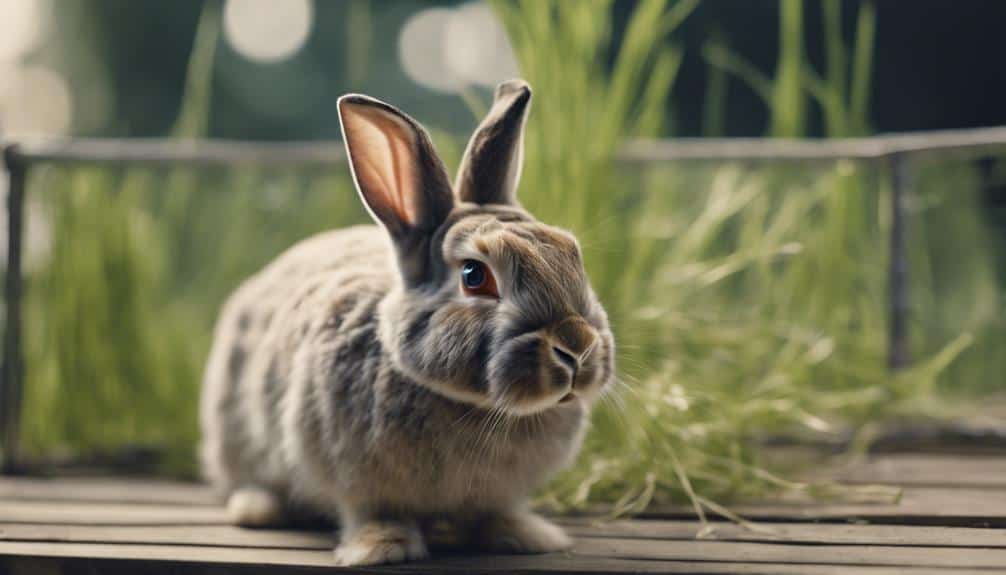
Feeding your adult rabbit alfalfa hay for too long can be really bad for their health. This is because alfalfa has very high levels of protein and calcium, which are great for young rabbits but can cause problems for adults.
If you keep feeding your rabbit alfalfa beyond the right age, you might be putting them at risk for a range of health issues. These can include obesity, kidney damage, bladder stones, and digestive problems like diarrhea, bloating, and gas. Additionally, eating alfalfa for too long can disrupt the balance of good bacteria in their gut, leading to digestive disorders and even life-threatening conditions.
The high levels of protein and calcium in alfalfa can also put a strain on your rabbit's liver and kidneys, causing them to function poorly. And, the high calcium content can even cause dental problems, like abnormal teeth growth, which would require regular vet visits and cost a lot of money.
Transitioning to Timothy Hay
When your rabbit grows up, around 7 months old, they don't need alfalfa hay anymore. It's time to switch to Timothy hay. But you can't just switch overnight – you need to do it gradually to keep your rabbit's tummy happy and healthy.
So, what's the plan? Mix both alfalfa and Timothy hay together for a few weeks. Start with a little bit of Timothy hay and add more over time. Keep an eye on your rabbit's weight and adjust their food accordingly. And remember, Timothy hay is super important, so make sure they have as much as they want during this transition.
Here's a quick comparison of the two hays:
| Alfalfa Hay | Timothy Hay |
|---|---|
| High in calcium | High in fiber |
| Suitable for young rabbits | Suitable for adult rabbits |
| Rich in protein | Promotes dental health |
| Should be limited in adult rabbits | Should be provided in unlimited quantities |
Age Considerations for Hay Change
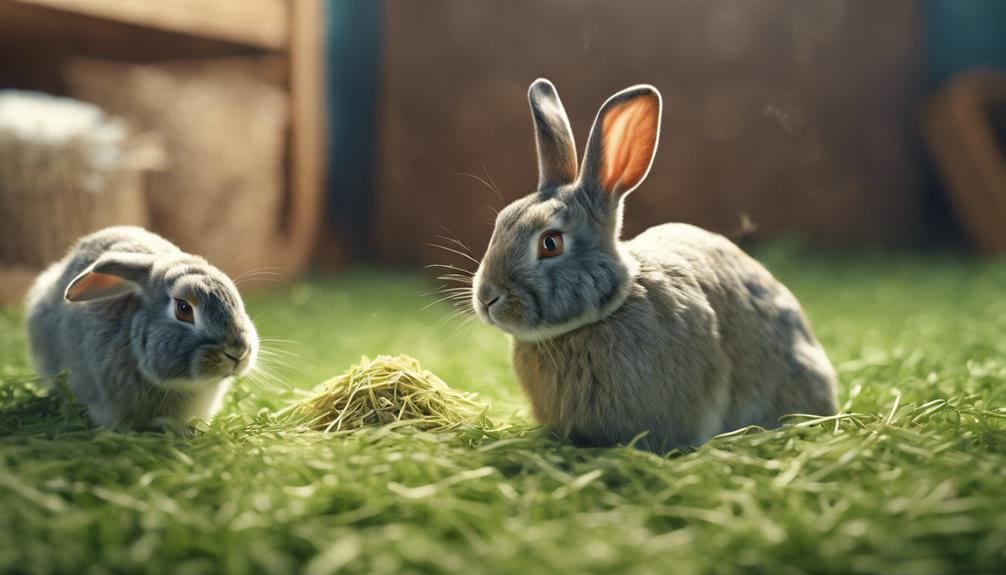
Switching your rabbit to a new type of hay is crucial for their growth and overall health.
When it comes to age, young rabbits have specific dietary requirements. For instance, dwarf rabbits should stop eating alfalfa hay at around 4 months, while standard rabbits should make the switch at 6 months, and giant rabbits at 12 months.
These timelines are important because rabbits under 1 year old need the nutrients found in alfalfa for growth and development. Around 4-6 months, you can start shifting them to timothy pellets. Between 6 months to 1 year, you'll want to gradually reduce alfalfa hay and junior pellets, introducing grass hays and oat hay to maintain a balanced diet.
Monitoring Rabbit's Dietary Needs
Monitoring your rabbit's dietary needs is crucial for their overall health and well-being, especially as they grow and develop.
Young rabbits have specific dietary requirements that change as they age. For instance, rabbits under 1 year old need alfalfa pellets to support their growth and development. However, you need to shift them to timothy pellets around 4-6 months to avoid digestive issues.
As your rabbit reaches around 7 months, they usually outgrow the need for alfalfa pellets and can be switched to timothy pellets for a balanced diet.
To ensure your rabbit's diet is on track, regularly monitor their weight, poop quality, and overall health. These factors will help you determine the right time to stop feeding alfalfa hay and introduce timothy hay.
Remember, dwarf rabbits should stop eating alfalfa hay at 4 months, standard rabbits at 6 months, and giant rabbits at 12 months.
It's also important to avoid feeding adult rabbits alfalfa hay due to its high protein and calcium content, which can lead to health problems if given long term.
Consulting With a Veterinarian
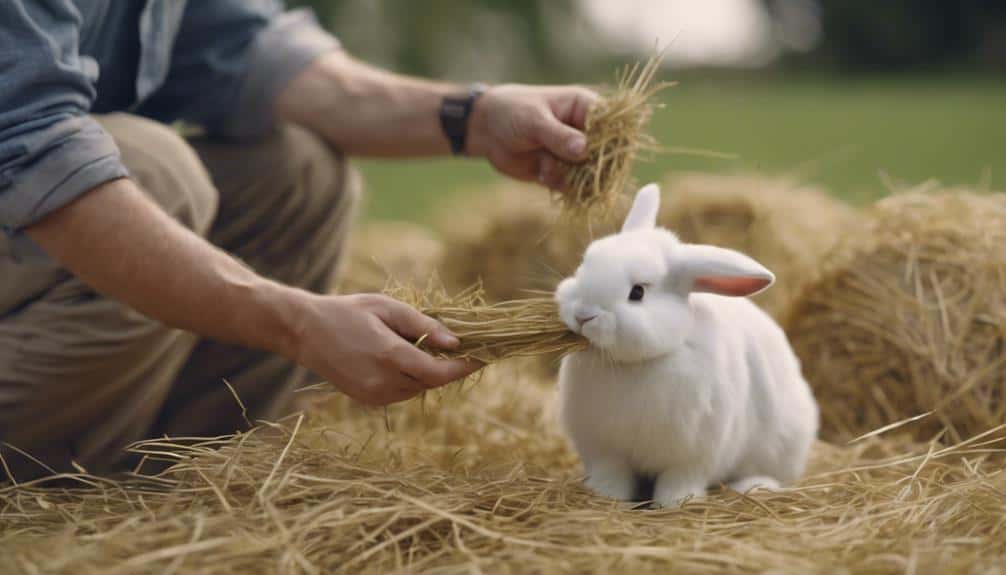
Consulting with a veterinarian is a must if you want to create the perfect diet plan for your rabbit and ensure their long-term health. They can give you personalized advice on when to stop feeding your rabbit alfalfa hay, taking into account their age, breed, and any existing health conditions.
For instance, a veterinarian can help you determine the best diet for your rabbit, avoiding potential health issues associated with overfeeding or underfeeding alfalfa hay. They can also identify signs that indicate your rabbit is ready to switch to timothy pellets, such as diet-related problems or excessive cecotropes.
Regular check-ups with a veterinarian are crucial for monitoring your rabbit's poop quality and adjusting pellet intake as needed to maintain a balanced diet. Your vet can also guide you on introducing new foods like timothy hay and help you create a customized feeding plan tailored to your rabbit's specific nutritional requirements.
Conclusion
So, you now know when to stop feeding your rabbit alfalfa hay.
To keep your rabbit healthy, remember that most rabbits over 7 months old should switch to Timothy hay to avoid health problems.
This change is crucial because alfalfa hay can cause issues in older rabbits.
Monitoring your rabbit's diet and getting guidance from a vet is vital to ensure they get the right food.
Make the switch at the right time, and you'll be helping your furry friend stay healthy and happy.

